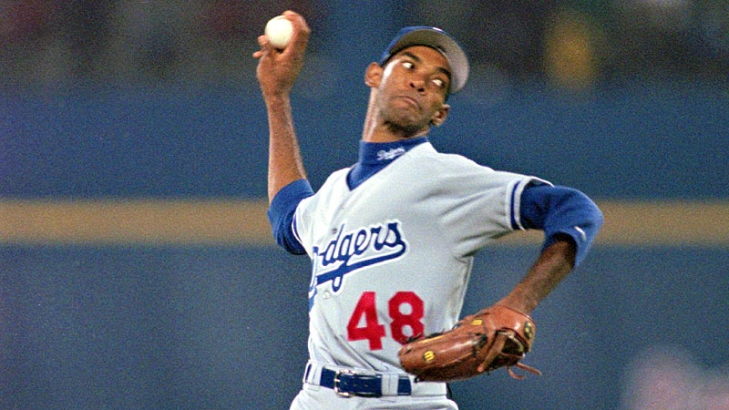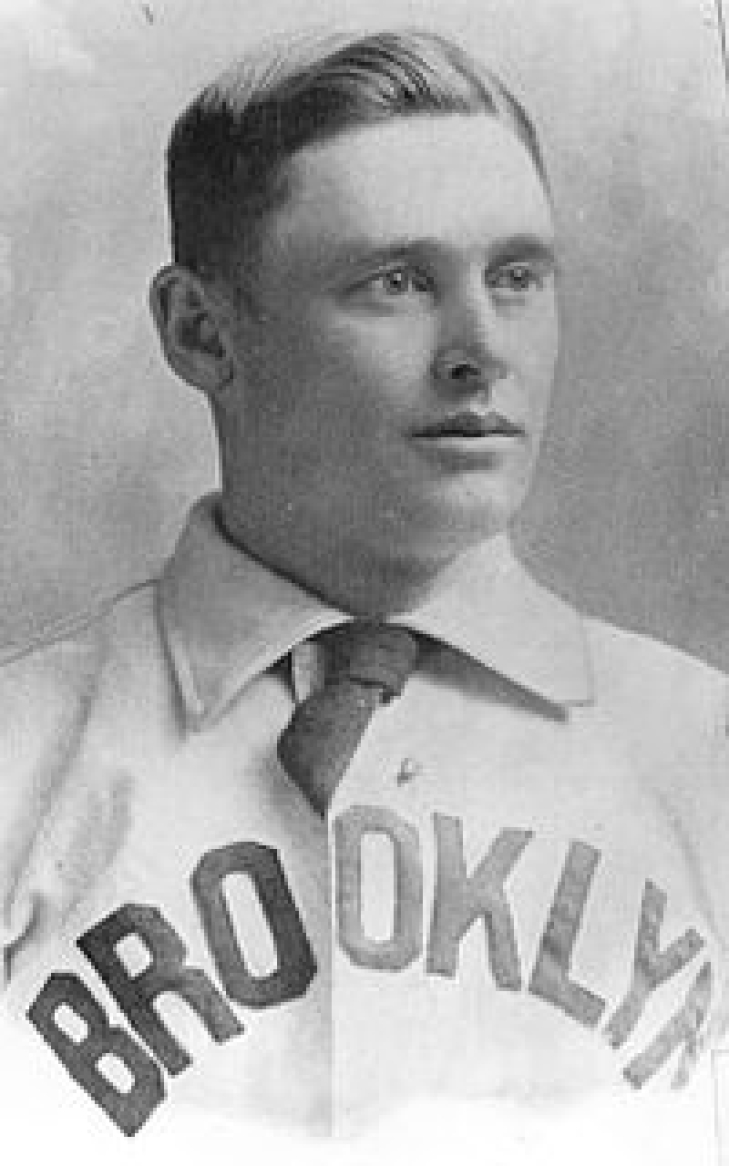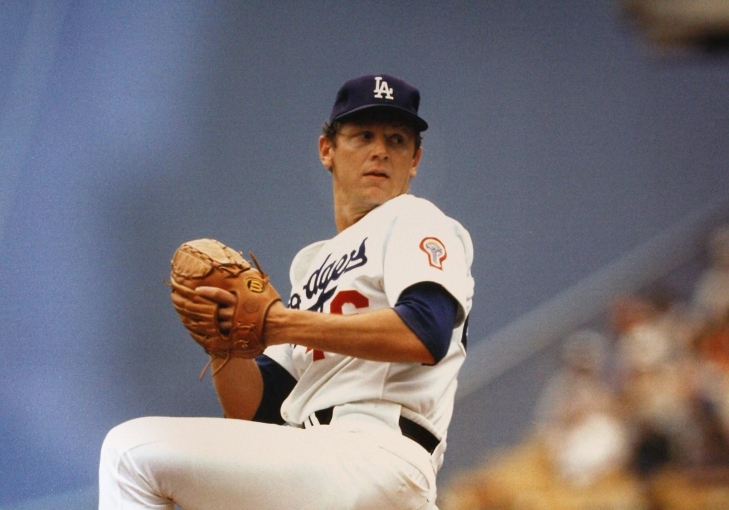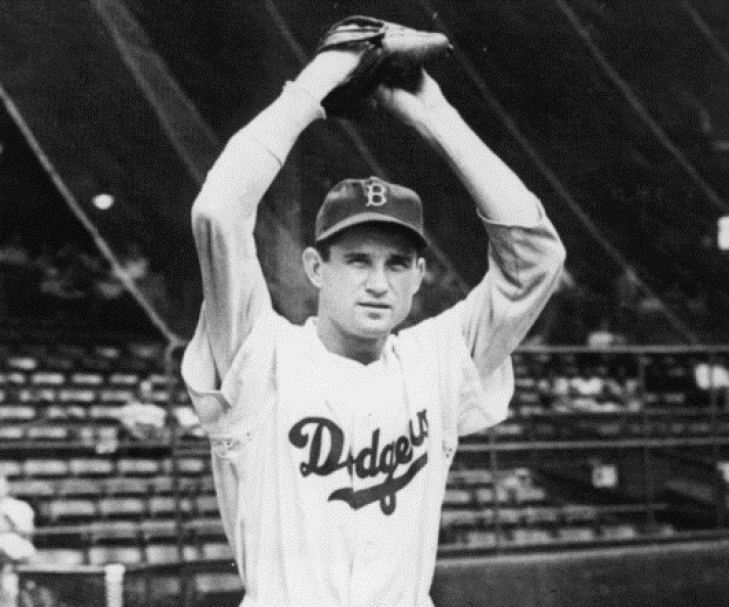
Committee Chairman
45. Ramon Martinez
When you win over 100 Games for the Dodgers, you would think you would be held in higher regard, but Ramon Martinez's long Dodgers tenure did not see a lot of playoff action.
Signed as an amateur Free Agent in 1984, the native of the Dominican Republic was the youngest player in the Majors when he debuted four years later for L.A.. The Dodgers won the World Series that year, though Martinez was not on the roster. He bounced back and forth between the Majors and Minors in 1989 but was a Major League player to stay in 1990, a year that was also his best in Baseball. This season, he was the Cy Young runner-up, All-Star, and the owner of a 20-6 Record, a 2.92 ERA, and 223 Strikeouts.
Martinez did not have an All-Star year again but was still a competent starter for many more years, including three more 15-Win years, but as Los Angeles slipped away from contention, the spotlight was not as intense. He left for Boston as a Free Agent in 1999, leaving behind a record of 123-77 with 1,314 Strikeouts.
39. Mike Griffin
Mike Griffin was already playing in top baseball leagues for four years, last playing a season in the short-lived Player's League for Philadelphia. The Outfielder joined Brooklyn in 1891 of the National League, the final team he would play for.
Griffin had a great start with the Bridegrooms, leading the NL in Doubles (36) with 65 Stolen Bases. Swiping at least 30 Bases each of the next three years, Griffin began a five-year streak in 1894 where he batted at least .300, which concluded in 1898. To his surprise, Brooklyn merged with Baltimore, and he refused to sign a contract under the new Manager, Ned Harlon. His contract was sold to Cleveland, who then transferred his contract to St. Louis. Griffin would never play again but did win a lawsuit against Brooklyn for money he felt owed $2,300.
His end with Brooklyn was not pretty, but his play was solid, with a .305 Batting Average, 1,168 Hits, and 264 Stolen Bases.
40. Burt Hooton
Burt Hooton cut his teeth with the Chicago Cubs, making their parent club in 1971, but the struggles in Wrigley saw the hurler traded to L.A. early in the 1975 Season. If you are to go by traditional statistics, this was the most fantastic year of Hooton's career, as he went 18 and 9, the best Winning Percentage in the National League.
Hooton remained a Starting Rotation fixture for Los Angeles for years, which included a spectacular year in 1978 where he was the Cy Young runner-up with a career-best in Wins (19), along with a strong ERA of 2.71. Helping the Dodgers win two Pennants in the late 80s, the veteran southpaw remained a viable hurler for L.A., going to his first (and only) All-Star Game in 1981. That year, he helped Los Angeles win the World Series, where he went 1-1 with a 1.59 ERA and won the NLCS MVP, where he earned both decisions by allowing zero runs in 14.2 Innings.
The righthander's career fizzled after the championship, winning only 16 Games over the next three years, and he was demoted to the bullpen in 1984. Hooton left for Texas as a Free Agent in 1984, but that lasted only one year before retiring.
With Los Angeles, Hooton had a 3.14 ERA with 112 Wins against 84 Losses.
43. Preacher Roe
An All-Star with the Pirates in 1945, Elwin “Preacher” Roe made the most of his belated opportunity with the depleted World War II roster, but when the Majors were replenished, the next two years saw his ERA balloon over five, though likely this was the result of the after-effects of a fractured skull he suffered from a fight while refereeing a high school basketball game. Now over 30, it appeared that Roe’s run in the Majors would end shortly, but Dodgers GM, Branch Rickey, had other ideas.
Now a Dodger, healthy, and using an illegal spitball, Roe became a star in their rotation. Roe went to four consecutive All-Star Games (1949-52), peaking with a 22-3 record in 1951, where he was fifth in MVP voting. Brooklyn were contenders, and he helped them win three Pennants (1949, 1952 & 1953), and though there were no Titles in Roe's resume, he had a 2-1 post-season record with a 2.54 ERA.
Age and fatigue caught up to the Preacher, and he never played for Baltimore, the team he was traded to after the 1954 Season. His pitches were slow, but he generated outs for Brooklyn and gave them a scintillating record of 93-37.





